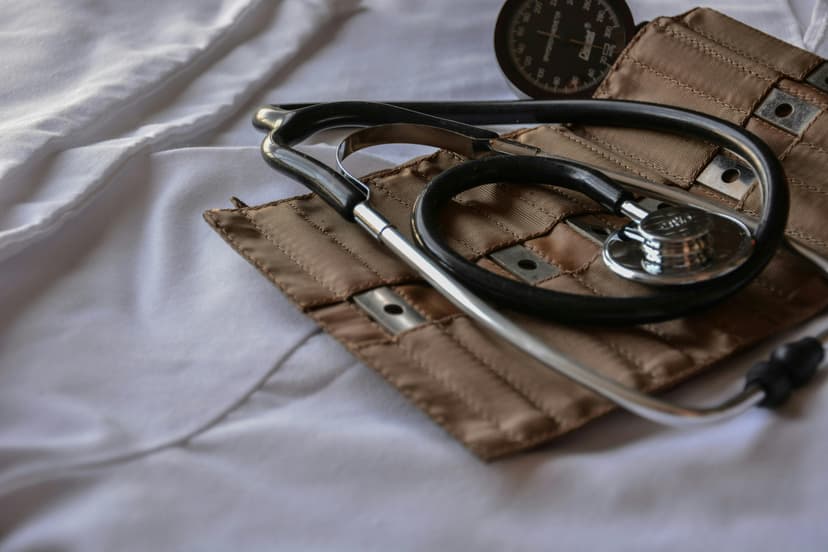The Ultimate Guide to Georgetown School of Medicine Letters of Recommendation
Unlock the secrets to securing strong letters of recommendation for your Georgetown School of Medicine application with our comprehensive guide.
Posted June 13, 2025

Join a free event
Learn from top coaches and industry experts in live, interactive sessions you can join for free.
Table of Contents
If you're applying to Georgetown School of Medicine, you know how important strong letters of recommendation are for your application. Your recommendation letters can provide valuable insight into your abilities, personal qualities, and potential for success in medical school. In this ultimate guide, we will walk you through everything you need to know about Georgetown School of Medicine letters of recommendation, from selecting the right recommenders to structuring your letters and submission tips. Let's get started!
Guide to Georgetown Medical School Recommendations
The admissions committee is interested in learning about your academic abilities, clinical skills, and personal qualities, such as empathy, teamwork, and resilience. Your recommenders should be able to speak to these aspects of your character and highlight your potential to become a successful medical student and future physician.
When it comes to academic abilities, Georgetown School of Medicine values candidates who have demonstrated strong intellectual curiosity and a passion for learning. Your recommenders should be able to provide specific examples of your academic achievements, such as outstanding grades in challenging courses, research projects, or presentations at conferences. Additionally, they should highlight your ability to think critically, solve problems, and work effectively in a team-based learning environment.
Georgetown School of Medicine also places great importance on clinical skills. Your recommenders should be able to speak to your experiences in healthcare settings, such as shadowing physicians, volunteering at hospitals or clinics, or participating in medical mission trips. They should highlight your ability to interact with patients, demonstrate empathy, and communicate effectively with healthcare professionals. Sharing specific anecdotes or patient interactions can help paint a vivid picture of your clinical abilities.
Personal qualities play a significant role in the admissions process at Georgetown School of Medicine. The admissions committee wants to see evidence of your compassion, integrity, and dedication to serving others. Your recommenders should be able to provide examples of situations where you have demonstrated these qualities, such as going above and beyond to help a patient, showing leadership skills in a community service project, or displaying resilience in the face of adversity.
It is important to choose recommenders who know you well and can speak to these specific aspects of your character. Ideally, they should have observed you in academic, clinical, or extracurricular settings and can provide detailed and insightful recommendations. It is also important to give your recommenders ample time to write their letters, as rushing the process can result in generic or less impactful recommendations.
When requesting recommendation letters for Georgetown School of Medicine, it is crucial to select recommenders who can speak to your academic abilities, clinical skills, and personal qualities. Their letters should provide specific examples and anecdotes that highlight your potential to excel in medical school and become a compassionate and skilled physician. Take the time to choose your recommenders wisely and give them the necessary information and time to craft strong and impactful letters on your behalf.
Read: How to Get Started on Your Letters of Recommendation for Graduate School
Select the Right Recommenders
Choosing the right recommenders is crucial. You want to select individuals who know you well and can provide meaningful insights into your abilities and potential. While academic letters from science professors are important, consider including a mix of recommenders who can speak to different aspects of your character and experiences. This could include physicians you have shadowed, research mentors, supervisors from volunteer experiences, and other professionals who have worked closely with you.
When approaching potential recommenders, make sure to ask early and provide them with important information, such as your CV, personal statement, and experiences that you would like them to highlight in their letters. It's important for your recommenders to have a clear understanding of your goals and aspirations.
One aspect to consider when selecting recommenders is the diversity of perspectives they can offer. Having a variety of recommenders who can speak to different aspects of your character and experiences can provide a more well-rounded and comprehensive view of your abilities and potential. For example, a science professor may be able to speak to your academic achievements and analytical skills, while a physician you have shadowed can provide insights into your clinical aptitude and interpersonal skills.
Including recommenders from different professional backgrounds can showcase your versatility and adaptability. If you have had volunteer experiences in a non-medical setting, such as working with a community organization or participating in a research project, consider asking a supervisor from those experiences to write a letter of recommendation. Their perspective can highlight your dedication, teamwork, and leadership abilities in a different context.
When approaching potential recommenders, it is important to be proactive and professional. Reach out to them well in advance, as they may have busy schedules and need time to write a thoughtful letter. Provide them with all the necessary information, such as your CV, personal statement, and any specific experiences or achievements you would like them to emphasize. This will help them tailor their letters to highlight the qualities and experiences that are most relevant to your goals.
Additionally, it is crucial to have open and honest conversations with your recommenders about your goals and aspirations. Share with them your long-term career plans, whether it is pursuing a career in medicine, research, or any other field. By having a clear understanding of your goals, your recommenders can align their letters to support your aspirations and showcase your potential in the best possible light.
How to Structure Your Letters
The structure of your recommendation letters is important for conveying the necessary information in a clear and organized manner. While there is no one-size-fits-all template, here's a general outline that you and your recommenders can follow:
- Introduction: Begin with a brief introduction, mentioning your relationship to the recommender and how they know you.
- Context: Provide an overview of the context in which you have worked together, such as classes, research projects, or clinical settings.
- Specific examples: Include specific examples of your abilities, accomplishments, and personal qualities. Provide anecdotes that highlight your strengths and make you stand out.
- Comparison: Compare your performance and qualities to other individuals the recommender has encountered in similar situations. This can help the admissions committee gauge your potential relative to other applicants.
- Conclusion: Summarize the main points of the letter and reiterate your strong recommendation for admission to Georgetown School of Medicine.
Remember, these are just guidelines, and you and your recommenders should tailor the structure to fit your unique experiences and qualities.
Submission Tips
As the deadline approaches, it's important to ensure that your recommendation letters are submitted on time and in the correct format. Here are some tips to keep in mind:
- Deadline: Communicate the deadline to your recommenders well in advance and kindly remind them as the deadline approaches.
- Format: Review the application requirements to determine whether the letters should be submitted online or by mail. Provide your recommenders with clear instructions on how to submit their letters.
- Thank You: Express your gratitude to your recommenders for taking the time and effort to write your letters. A thank-you note can go a long way in maintaining positive relationships.
By following these tips and guidelines, you can ensure that your Georgetown School of Medicine letters of recommendation are strong and enhance your chances of receiving an offer of admission. Good luck with your application!
Read these next:
Browse hundreds of expert coaches
Leland coaches have helped thousands of people achieve their goals. A dedicated mentor can make all the difference.


















